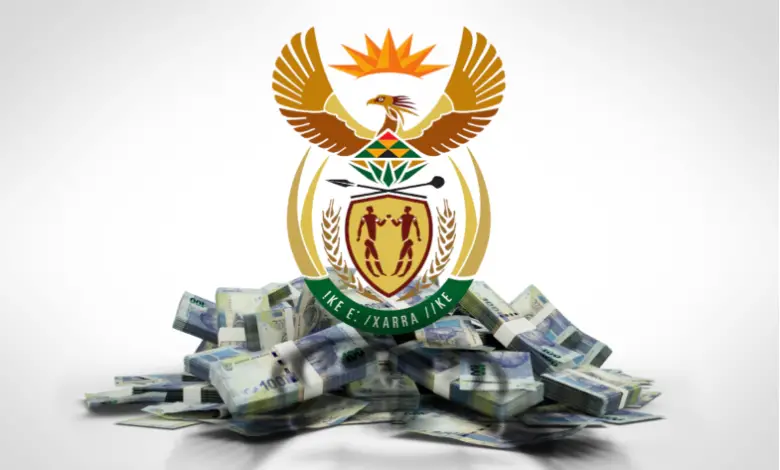How much the average government worker gets paid in South Africa

How much the average government worker gets paid in South Africa
SOURCE: BUSINESS TECH
_____
Recent data from the latest Medium-Term Budget Policy Statement (MTBPS) revealed how much the National Treasury spends on salaries and wages for workers in the public service.
According to finance minister Enoch Godongwana, the government has been focused on increasing capacity in key critical service delivery sectors.
The 2022 budget allocated R50 billion over the 2022 medium-term expenditure framework to education, health, and the security cluster to respond to spending pressures and changes in headcounts.
A further R43.6 billion has been made available for 2023 to increase headcounts, mainly in education, health and the police force, said the minister.
In terms of the average expenditure on salaries and wages divided by the number of employees in a sector, the average public-service employee earns R457,209 a year – R38,100 a month.
Employees in the defence sector are the best paid, following education and then health.
BusinessTech looked at the provided salaries and headcount of specific sectors, as provided by the MTBPS, and calculated the average annual pay for an employee in each sector:
Across different segments, workers at public entities are the highest paid on average, followed by those working in national government departments.
Godongwana said the pandemic affected the size and composition of many government sectors through deliberate choices to increase the country’s health response capacity.
The health sector grew by more than 18,500 employees between 2015/16 and 2021/22 as employment in the rest of the public service (excluding the education sector) shrank by about 30,000 employees over the same period, said the minister.
Since the 2015/16 financial year, education, health, police and defence accounted for over 80% of the total public-service employment statistics.
“The biggest increase in headcounts over this period occurred in the health sector, followed by education, while other sectors experienced a consolidated decline in headcounts.” Some of the decreases in headcounts can be attributed to the option to retire early without penalisation – coming into effect in 2019.
Over the medium term, the government will focus on increasing capacity in services such as education, health and police and develop a single remuneration policy to guide remuneration decisions across different spheres and entities, said Godongwana.
Wage increase demands
Public servants have been asking the government for higher wages; however, they have reached a deadlock.
Under the MTBPS, the Treasury said that no wage increase provisions for 2024/24 have been made, although increases will need to remain within the available fiscal resources so as not to compromise other spending priorities.
Unions refused the government’s offer of a 3% pensionable pay increase and a cash gratuity of between R1,000 and R1,200 till the end of March 2023. The unions stated that it was too far below inflation and did not take into account the rising cost of living.
Four unions are contemplating joining planned industrial action by the Public Servants Association (PSA), which already has 235,000 members – pushing the strike to 800,000 strong.
To date, however, only the PSA has set a date for any strike action, with Thursday, 10 November, expected to be the launch of a nationwide campaign to disrupt government services, particularly at Home Affairs and at licencing departments.
The Department of Public Service and Administration (DPSA) said on Wednesday that the government has put measures in place to mitigate the impact of strike action by public servants on Thursday.
The department said all provisions related to the management of employees participating in the protected strike shall apply.
“The State, as the employer, calls upon trade unions to return to the bargaining chambers to start negotiations for the 2023/24 financial year in order to conclude the process before the Minister of Finance tables the final budget in February 2023.
“This further demonstrates the department’s commitment to re-align the negotiations to the government’s planning cycle,” the DPSA said in a statement.
DPSA reiterated that government will continue with the current non-pensionable cash allowance until 31 March 2023 for all employees on salary levels 1 to 12, including those covered by the Occupation Specific Dispensation (OSD), employed in the public service, and a 3% pensionable increase for all employees on salary levels 1 to 12, including those covered by the OSD employed in the public service, backdated to 1 April 2022.
According to the department, the date of payment is 17 November 2022.
The department said the implementation of the non-pensionable cash allowance and 3% pensionable increase for members of the Senior Management Service, with effect from 1 April 2022, will be implemented as soon as the cost of living adjustment for non-SMS is concluded.
THE END.
_____
Also Check> Things fall apart at Eskom
_____







